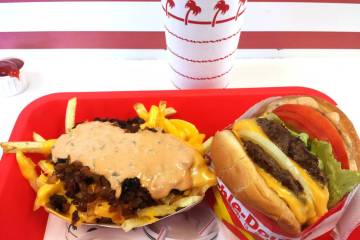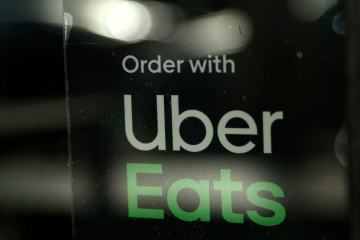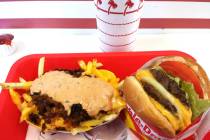Learning from the Past
We either already are or soon will be in a recession, and things either will get worse or they won't -- the scenario depending on your source. About all the crystal-ball-peerers agree on is that the country's economic situation isn't going to get better anytime soon. There's even been talk that we could face another depression.
Which, of course, brings to mind nearly 80-year-old stories not only of deprivation and tribulation but also of stoicism and creativity. Our grandmothers learned how to stretch their food dollars to the max; maybe we should be thinking about doing the same.
But maybe not in the way they did.
Browse through Depression-era cookbooks and you'll find recipes that make use of items we'd normally toss today, like sour milk. Sour milk can add a moist texture and a bit of a tangy flavor to baked goods, but today we usually use buttermilk -- or add vinegar to fresh milk.
You'll also likely encounter lots of cream sauces: creamed eggs on toast, creamed peas on toast, creamed dried beef on toast, onion cream soup. It was a great way to save money, butter and flour and milk being less-expensive ways to "stretch" meat or avoid it altogether -- but that generation not only engaged in physical activity a lot more than ours does, we've learned more about healthy diets since then.
"We don't necessarily encourage people to do that now, because of the fat and calories involved in cream sauces," said Mary Wilson, registered dietitian and extension nutrition specialist with the University of Nevada Cooperative Extension.
Wilson points out that one major difference between the era of the Great Depression and this one, however bad the economy may get, is that there are programs in place to provide food for people who are particularly challenged economically.
"Most concerns were for child nutrition," Wilson said of the Depression era, adding that the school-lunch program was started in 1946. Other programs, she said, include food stamps (which she noted are meant to supplement, not serve as the sole food source), surplus commodities and WIC, or Women, Infants and Children.
"When families are challenged financially with jobs and all the other pressing issues of the economy, certainly making sure that your children are well-fed should be a no-brainer," she said.
Another difference between then and now, Wilson said, is the widespread obesity today and the health problems that stem from that -- "disease rather than starvation, which we had in the Great Depression. We're trying to help people think about different ways to have more healthy foods and still remain on a budget."
That would include buying fresh produce in season, when it's least expensive, or buying frozen or canned when they're on sale -- especially because they're not perishable like fresh, so there's less waste. She added that canned fruits and vegetables can be rinsed under running water to remove excess sodium or sugar.
Another way to save is to buy store brands instead of name-brands; Wilson said that during classes, she often has people taste them side by side to discover there's little or no difference.
Pasta, she said, has always been "an easy, cheap meal," with a simple tomato sauce, with or without meat.
Canned beans, she said, are an excellent source of protein, carbohydrates, energy and fiber, and eggs are an excellent source of protein.
Buy bread on sale and freeze it, she advised.
Noting that ground-beef consumption is up, Wilson said after it's cooked, it should be rinsed (in a colander) under running water to remove excess fat.
And the No. 1 way to save money on food:
"People could save a lot of money by limiting the number of times they eat out," Wilson said. "That's something that didn't exist back then in the abundance we have today -- by far."
Takeout and prepared foods also are a drain on the food budget, she said -- and usually less healthful than homemade.
"Step back and say, 'OK, maybe it would be better for me, rather than making this canned pasta or from a box, maybe I'll make it from scratch,' " she said. But Wilson acknowledged that it's "kind of a balancing act" with so many two-career households.
"There are lots of ways we can more economically feed our families by making it ourselves," she said. "The challenge is as a culture, how can we make that change?"
Contact reporter Heidi Knapp Rinella at hrinella@reviewjournal.com or 702-383-0474.






















